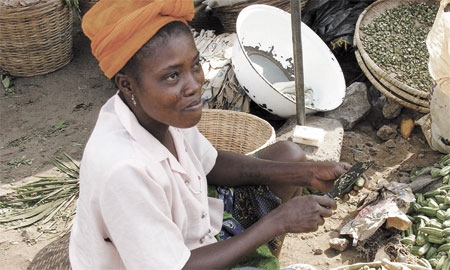Formerly the sector was controlled by the National Produce Marketing Organization, but now the ONCC intends to increase production of cash crops, regulate exportation and marketing, while ensuring international quality standards.
The government has given the ONCC a number of financial packages, to help refurbish its laboratory and provide spraying equipment, insecticides, and training for farmers.
“In 2006 we embarked on a revival programme to put cocoa and coffee back in the forefront of growth in rural areas”, says Mr. Michael Ndoping, Managing Director of the ONCC. “We are not disappointed, and if you visit the farmers you can see what has been achieved.”
“With the development of infrastructure Cameroon has huge potential, the only problem we have is that of capital. Once we can resolve that problem Cameroon will be able to feed the region and other parts of the world,” says Mr. Ndoping.
Coffee and cocoa have the potential to boost development in rural areas and change the economic environment in Cameroon. However, sustainability is of paramount importance, both in the production phase and beyond.
“To us sustainability is selling cocoa and coffee at a price that pays the farmer a profit margin and covers the cost of the material. Until we get a fair price, sustainability will not happen,” says Mr. Ndoping. “Sustainability for us is taking care of the future, and of the farmers – and then they can take care of other issues.”

0 COMMENTS